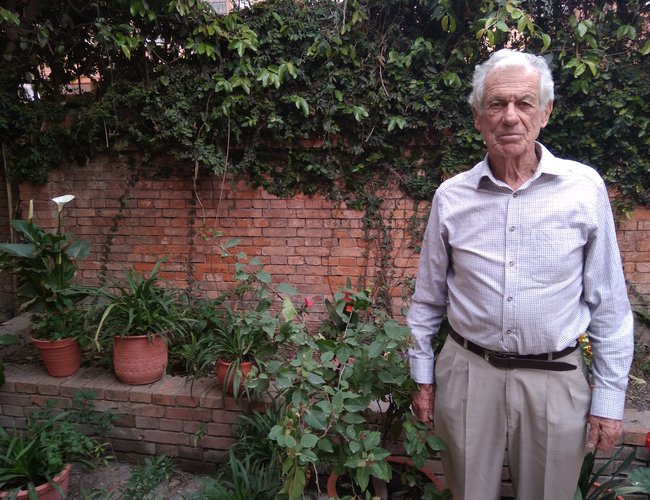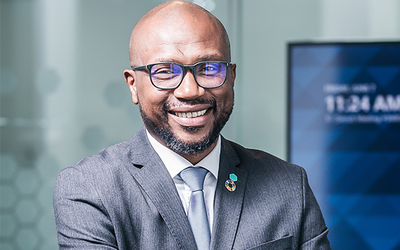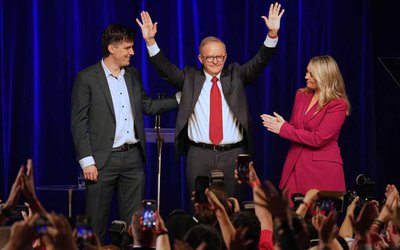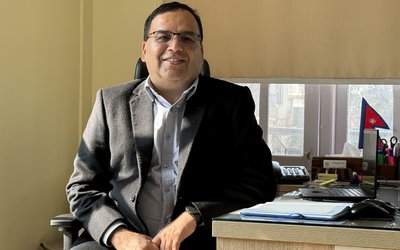
Why did you first come to Nepal?
Well I served in the British army for twenty years, including time spent with the brigade of Gurkhas in Singapore, Brunei, Borneo and Malaysia. I got the opportunity to first come to Nepal in October 1962 to be in charge of ‘The Gold Escort’, which is a separate story in itself.
I
was here for six weeks in the depots in Dharan, Kathmandu and Bhairawa, in
addition to a short trek out of Pokhara.
After my best days in the army with the Ghurkas, I returned to the UK in 1965. I served in Northern Ireland and Germany, and passed Staff College. I retired voluntarily in 1977.
Soon after, my wife Wendy (whom I had met in Singapore) and I went down to Jersey Channel Islands for a weekend to see a friend. It turned out that he had a young lady working for him at the time, whose brother was in Nepal and had set up the famous Tiger Tops lodge. Subsequently, I met him and was eventually offered a job with Mountain Travel Nepal, which was by then a part of the Tiger Tops organisation.
So, in the spring of ’78 my wife and I drove overland from the UK to Kathmandu, thinking we would be here for a couple of years but we never actually got round to leaving!
Our
daughter Alison was born here seven weeks after we arrived.
Have you seen trekking change much since you arrived?
Hugely. When I first arrived trekking was almost exclusively a camping experience. There were very few lodges, teahouses or backpackers.
Treks were organised by a team of Sherpas along with a ‘sardar’ (trek manager), cook and support staff. It was all totally self-sufficient with local porters carrying all the heavy camping gear, food, fuel etc. Even if you only had just two trekkers, you could have a party of over ten people – Sherpas, porters and all. These days are a contrast, with lodged trekking being the most popular form.
Both types of trekking have their benefits; tented trekking is good for employment and lodge trekking is good for putting money straight into the villages.
The number of people coming into Nepal and trekking has increased vastly also.
You led the Royal Trek during your time at Mountain Travel, right?
Yes. The Government invited Prince Charles, the Prince of Wales, to Nepal in December, 1980. They contacted Mountain Travel to see if we would take him on a trek, which of course we were delighted to do. We arranged a short four-day and three-night camping trek on the ridge lines to the east of the Pokhara valley, ending by Begnas Lake.
There were thirteen members in the main trekking party, including the then Nepali Prince Dhirendra, the King’s younger brother. A specialist signals/communications and medical team were in attendance. There was a support staff of some thirty-two Sherpas and one-hundred and thirty porters, believe it or not. There was also a battalion of troops covering security who came along, although they kept well out of sight.
The Prince of Wales is very fit, is very fond of water colour painting and did much on the trek.
It was a great experience.
After trekking you moved to Summit Hotel. How did that happen?
Well, I left Mountain Travel in 1990 and wondered what I was going to do for a job. I’d hopefully managed to gain a decent name for myself in tourism so when the position for Manager at Summit Hotel became available they approached me. I was not a hotel man at the time but with Wendy’s help we managed to build the place up and made it very successful. I contributed mostly by making the bar the best in town! I worked there for twelve years overall, which was a lot of fun. It was a very rewarding experience and Summit trekking developed lots too.
One of Robin’s many dogs started chasing the cats at this point, needing a stern response from Robin.
Also, during this time, maybe in 1992, Wendy started Kathmandu’s first organic vegetable market at the Summit. Now they are really popular – there’s a number of them. You should go to the one on Saturday morning at Le Sherpa in Maharajgung. Hugely successful.
Your wife’s done a lot here in Nepal too, right?
Yes, Wendy started doing a lot of silver, wood and metal design work with Patan crafts people when she first arrived. Then, around twenty years ago, she was approached to raise funds to support treatment for burns patients, of which there are some fifty-eight thousand cases per year in Nepal. With our daughter Alison, she created an NGO called Burns Violence Survivors Nepal, which has been running for ten years. She’s an advisor and fundraiser for them now, which is always a difficult job. For her work, she was awarded the British Empire Medal on our Queen’s birthday honours list in 2015. A great achievement.
Also, when Prince Harry visited Nepal two years ago she showed him around the children’s burn wards at Kanti Hospital.
She’s
still a fan of crafts work.
And have you done similar charitable work?
North of Pokhara I do school support and conservation work for the World Pheasant Association. It follows on from a project started by Colonel J.O.M Roberts, the founder of Mountain Travel. There is a good pheasant reserve area on the east flank of Machapuchhre, where we try to provide support for that with direct help to the schools in the Seti river valley below.
It was at this point that a donkey started to nudge my arm. Robin explained that this was Pooja, whose mother gave birth to him to their back garden. Robin and Wendy rescued Pooja’s mother from a brick factory in the Chobar gorge area. She had been very badly neglected and was very sick. Eventually she recovered a little and gave birth to Pooja. Robin questioned where Jasmine, their other rescued donkey was. Just at that moment Jasmine came trotting round the corner of the house to see us. I continued to question him, eating biscuits, petting Pooja, whilst Shobha the sheep had grown fond of resting his head on my lap.
What would you say has been your greatest personal contribution to Nepal?
I would like to think that I’ve helped people. I’ve worked with businesses and associations to help local business and tourism, as well as hopefully passing on management expertise to young Nepalis. My work at Summit wasn’t about telling people what to do but about passing on knowledge. So I’d like to think that’s been important. It was wonderful to work with Nepali staff who are first class and just great to work with.
Hopefully my charity work has been of some help as well as my contribution to tourism.
It must be rewarding to see a tangible impact that you’ve had on this country and its tourism industry.
Indeed. I would like to think so and if that is indeed so, that would make me happy.
Despite your contributions, do you see any potential problems for the industry?\
Yes, absolutely, infrastructure, or the lack of it, is a serious problem in Nepal and is holding back not only the development of tourism, but the development of the whole country. The airport is a real holdup and can’t cope with the growth of the industry. If you just look at the manic arrivals or baggage collection halls at Tribhuvan, you can see the strain they create. I mean, there’s just one runway to host the incoming traffic for the whole country. Regional airports are being built in Pohkara and Bhairawa but they won’t be finished for three to four years, by which point damage could already be done.
Not to mention the management limitations Nepal has. Aid and private investment is available to meet development needs but the money isn’t being spent. I think by half way through last year just 17% of the development budget had been spent. It’s a real issue.
You often talk about Nepal as if you are from here. Has your identity changed at all after all these years?
I wouldn’t say that my identity has changed as such, my wife and I are certainly still British. I would say that Nepal is home though, and that’s a big change. It would be difficult for us if we had to move back to the UK. We go back there every year and have relatives there but the majority of our friends are here now, and are Nepali. Few expats stay for more than a few years. So yes, Nepal is home.
Our difficulty with staying here lies with visas though and indeed that is also another story.
Robin’s dogs are wanting our attention now too.
And do you have children here?
We have one daughter who spent the first fifteen or sixteen years of her life here. Spoke Nepali before English.
She went off to university in the UK before coming back to work for the International Committee of Red Cross. She worked in the hills as an interpreter during the Maoist insurgency – had some hairy times in the west and far west of Nepal. Now she’s based in London but is a large part Nepali.
She is currently working with a UK company started by an ex-Ghurka involved with the ethical recruitment of Nepalis to work in Malaysia and the Arab States.
Post-2015 earthquake she managed to raise £370,000 in the UK for relief. There were no administrative or admin costs and all of that money went directly to helping people with rebuilding homes and schools and sorts. A tremendous achievement.
So after all these years in Nepal, how has your worldview changed?
Well it’s bound to have become broader. When one lives outside their country they have far less of an intense loyalty for one particular country. You begin to appreciate what other countries have to offer. I also feel like one becomes more sceptical of the “we know everything attitude” of the west and appreciates the many talents and ways of life of our Nepali friends.
That being said, it’s still nice to be British.
Shobha the sheep tries to nip at my biscuit.

Alex Bushnell
Alex is an intern
- Communists And Insurgents: Nepal’s Past And Present
- May 25, 2018
- Ghandi & Associates’ Coveted Founder Speaks About His Past And Nepal’s Future
- May 04, 2018
- Nepal’s Top Lawyer Decries Corruption And Nepotism’s Effects On Investment
- May 04, 2018
- Mohan Shumsher – the Rana’s saviour
- Apr 21, 2018
- “Chandra Shumsher’s Accomplishments Are Iconic”
- Apr 21, 2018















